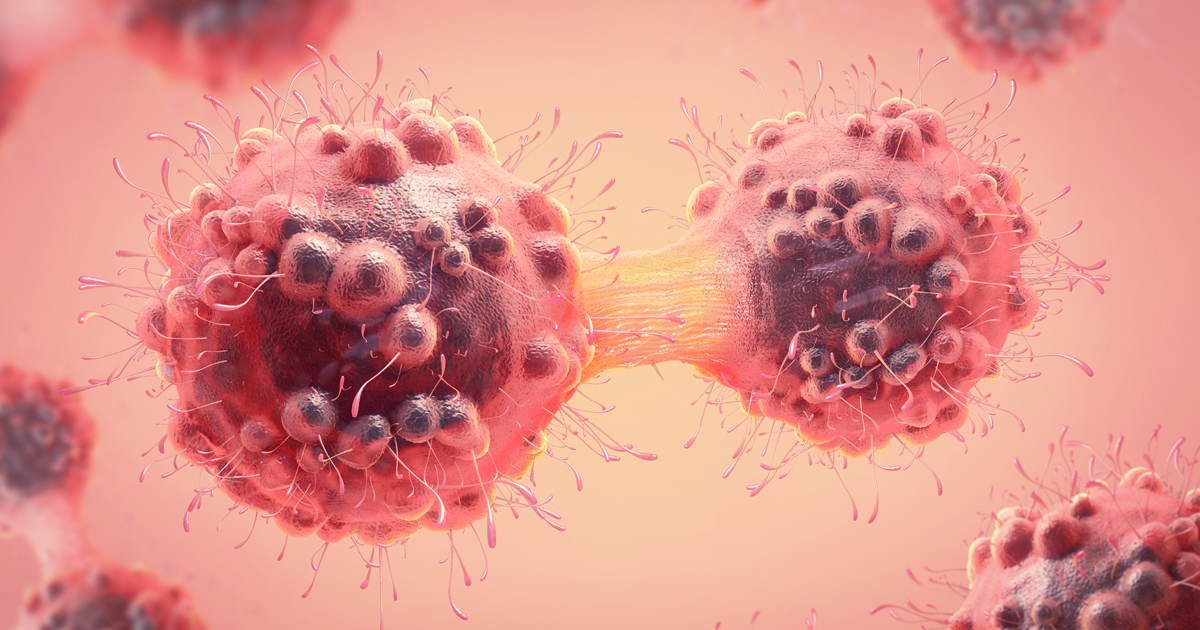
For centuries, people believed that cancer was one disease. When Hippocrates wrote about cancer in 400 B.C., for instance, he said that cancer was a single disease that wouldn’t fully go away, even after surgery. Since that time, of course, scientists have made significant breakthroughs and discoveries about what cancer is and how to treat various types with positive outcomes. In fact, they’ve learned more about cancer in the past two decades than they’d learned in all the centuries preceding them.
This time of rapid discovery has been called the era of precision medicine, when doctors’ approach to cancer treatment has evolved from one-size-fits-all strategies to much more tailored approaches—in many cases, customized to target a cancer’s specific genetic makeup, regardless of where in the body it develops.
Yet even as more and more targeted therapies are approved by the U.S. Food and Drug Administration (FDA) and our understanding of the complex disease advances, some still wonder why a single silver bullet to cure cancer hasn’t been discovered.
“The human mind tends to seek easy-to-understand answers,” says Eugene Ahn, MD, Deputy Medical Director of Clinical Research for City of Hope Cancer Centers in Atlanta, Chicago and Phoenix. “But cancer is just a name for cells that are rapidly dividing without regard to the body. Each cancer behaves differently based on many factors, and even cancers from the same site of origin, like breast cancer, can be radically different depending on their unique molecular profiles.”
In this article, we’ll explore:
- Why cancer is not one disease
- How is cancer different from other diseases?
- Why haven’t we cured cancer?
- Can cancer go away on its own?
If you’ve been diagnosed with cancer and are interested in a second opinion on your diagnosis and treatment plan, call us or chat online with a member of our team.
Why cancer is not one disease
Cancer develops from the body’s own cells, meaning it can be as diverse and unique as we are. But that understanding is relatively new. The disease develops when cells in the body begin to grow out of control. In most people, cells grow and multiply to form new cells as the body needs them. When they grow old or are damaged, new cells take their place and the old cells die. Sometimes this process doesn’t work the way it should, though, and abnormal or damaged cells start to multiply. These cells can form tumors, which are lumps of tissue. Tumors can either be benign (not cancerous) or malignant (cancerous).
Benign tumors can grow but not metastasize. If they’re removed, they don’t tend to grow back. On the other hand, malignant tumors can spread into nearby tissue and travel to other parts of the body via a process called metastasis.
Which type of cancer you have depends on where in the body it forms. For example, cancer that develops in the breasts is called breast cancer, whereas cancer that forms in the prostate is called prostate cancer.
But, by definition, cancer is a genetic disease, meaning it’s caused by changes to genes that control the way cells act—including how they grow and divide. These changes that can lead to cancer are either inherited, caused by errors that happen as cells divide or are the result of damage inflicted on the cells’ DNA by environmental factors like tobacco smoke or the sun’s ultraviolet rays.
Still, researchers now know that cancer is actually an umbrella term for scores of different diseases—each with its own unique characteristics and, often, unique treatment needs.
For example, many prostate and breast cancers respond to hormone therapies that prevent cancer cells from getting the hormones they need to grow. But lung cancer doesn’t generally respond to hormone therapy and is, instead, more often treated with surgery, chemotherapy, radiation therapy, immunotherapy or targeted therapy—either alone or in combination. On the other hand, some drugs are used to treat several kinds of cancer.
Every cancer type may also be caused by a different set of genetic mutations. As the tumor grows, more and more mutations develop, which means that each tumor has a unique set of mutations and can look completely different at the molecular level.
That means that a drug that works for one patient may not benefit another patient with the same cancer type.
“Sometimes, drugs overlap and can work for different cancer types, but that’s something that has to be proven through clinical research, because it’s certainly not safe or reasonable to assume that one drug is going to work for every cancer type just because it works for one,” Dr. Ahn says.
How is cancer different from other diseases?
Because cancer isn’t just one disease but a collection of more than 100 diseases, it may have many different characteristics, risk factors, causes and treatments.
For example, cancer is divided into two main categories—hematologic (or blood) and solid tumor—but even cancers in these categories don’t have many commonalities. Not only do they tend to require different treatments, but they can also grow and spread differently. And how they affect adults and children can vary, too.
“Many times, whether it’s a common cancer or a real oddity, a lot of patients don’t really understand it,” says Stephen Lynch, MD, Primary Care and Intake Physician and Vice Chief of Staff at City of Hope Cancer Center Phoenix. “They’ve been told they have breast cancer. Well, breast cancer is many different diseases. They’ve been told they have lung cancer. That’s many different diseases. So, first and foremost is helping the patient understand the foundation of their disease.”
One trait unique to most cancers—and that differentiates those cancers from other diseases—is its ability to spread. Yet certain cancers are more likely to spread to certain areas. For instance, breast cancer tends to spread to the bones, liver, lungs, chest and brain, while prostate cancer tends to spread to the bones.
Why haven’t we cured cancer?
Some people may wonder why, with all the money invested in research, cancer still doesn’t have a cure. But if cancer is merely a blanket term for hundreds of diseases, the goal can’t be just one cure, but potentially dozens—even hundreds.
Another hurdle to curing cancer is recognizing that the treatments scientists have developed to fight the disease can sometimes stop working, especially as cancer cells develop more and more genetic mutations. These mutations can lead cancer cells developing resistance to treatments over time, making them stop working.
And, of course, there’s the host of tricks cancer cells have developed to survive and avoid both being detected and attacked, like their ability to hide from the immune system.
Can cancer go away on its own?
While a silver bullet isn’t likely to cure cancer, you need to remember that, except in very rare cases, cancer won’t go away on its own. You must seek treatment—and be very skeptical about claims you’ve heard regarding alternative therapies, which nearly 40 percent of Americans believe are sufficient to cure the disease. (Alternative therapies are different from integrative, evidence-informed therapies, which are used along with standard medical treatment to help patients manage side effects of treatment and the disease.)
“Cancer is a complicated topic,” Dr. Ahn says. “We’re still learning a lot about each cancer type each year, and it can get very complicated for anyone who gets diagnosed and is looking for solutions. So it can be easy to be drawn into simple narratives or quick-fix solutions that claim to provide magic bullets,” like those boasting a “miracle cure.”
Although there’s something attractive about the simplicity of alternative medicine approaches, like following a special diet or taking high doses of a certain vitamin, cancer patients should use healthy skepticism and be their own advocate when it comes to curative claims that aren’t based on science, Dr. Ahn says.
“Be very cautious and use your judgment when you read an article that claims to have found the one cure for cancer,” he says. “There tends to be an assumption that if it’s in the media or on the internet, it must be important, but that’s not always true. And if the sources talk about cancer as only one disease, odds are they don’t fully understand cancer.”
If you’ve been diagnosed with cancer and are interested in a second opinion on your diagnosis and treatment plan, call us or chat online with a member of our team.


